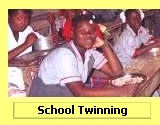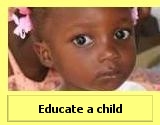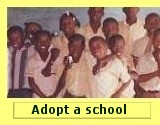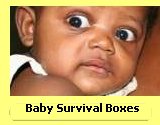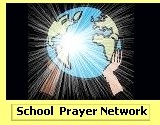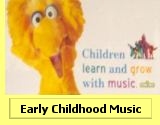home >> caribbean mitigation
 UNITED
CARIBBEAN TRUST- Community-based Disaster Mitigation Empowerment
Initiatives
UNITED
CARIBBEAN TRUST- Community-based Disaster Mitigation Empowerment
Initiatives
How to Be a Mentor
1. What is a mentor?
Discuss what mentoring is and what a mentor does.
2. What qualities make an ideal mentor?
Brainstorm the qualities that make a good mentor.
Possible qualities include the following:
• Community-based mitigation experience
• Mentoring experience
• Familiarity with CBOs/FBOs and their missions
• Availability and willingness to mentor
3. Given these qualities, who should the mentor be, and
where should we look to find that person?
Develop an action plan that includes identifying mentor candidates and
the means of securing their assistance. Community-based Pre-Disaster Mitigation
for CBOs/FBOs
Thinking Creatively about Resources
1. Identifying what kinds of resources are
needed
Brainstorm resources needed for the mitigation program
and activities. Consider the full range of needs, including the following:
Financial
• Funding
• Advice
• In-kind donations
Materials
• Equipment and tools, either donated or loaned
• Specialized safety equipment (hard hats, vests)
• Supplies (office supplies, water coolers, cups, refreshments,
garbage bags, etc.)
• Printing (signs, training materials, forms, flyers, posters, etc.)
• Information (how-to, project ideas, training materials, etc.)
• Participant and donor recognition (ball caps, T-shirts, key chains,
other freebie items, plaques, etc.)
Legal/Insurance
• Volunteer liability release forms
• Trained operators for specialized equipment
People
• Volunteers
• Office and administrative support (answering phones, making copies,
word processing, database development, mailing assistance, postage, etc.)
Miscellaneous
• Transportation
• Facilities for meetings and activities
• Technical support and volunteer training
• Other organizational and project specific needs
2. Defining what our organization can provide
List resources available through your organization. Community-based
Pre-Disaster Mitigation for CBOs/FBOs
3. Identifying other sources of support
Brainstorm support that could be requested and obtained
from other sources, including the following:
• FEMA and other Federal agencies
• Volunteer organizations that specialize in disaster programs
• CBOs/FBOs – local, regional, national
• Personal and professional networks
• Local businesses
• Trade associations and other similar groups
• Funding and grant sources (agencies, institutions, foundations,
etc.)
• Web sites and published resources
• Asset analysis; analyze what is existing within your organization
– don’t re-invent the wheel
• Economic development office
• Planning office
• Insurance agencies
• Unions
• Utilities
• School districts
• Transportation departments
4. Getting outside of the box
Stretch and get creative. Come up with three “really
out of the box” ideas for obtaining resources.
Creative Resource Thinking
• Consider reframing your program. For example, while mitigation
is the goal, you could consider other focal points for grants or requests
for assistance, such as support for community-building and
social development, skill development for minority or underserved populations,
intergenerational or interfaith programs, environmental programs, etc.
• Ask for referrals. Ask each person to recommend other sources
to contact, regardless of whether
that individual or group is able to assist.
• Join forces with other organizations to ask for joint donations.
For example, if a group of lowincome residents needed home improvements/repairs
to mitigate an encephalitis outbreak, FBO
volunteers could join forces with the Boy Scouts to request window screen
donations from the local hardware store.
• Share resources with other organizations – you provide the
safety equipment for your project and a
project of their choosing, they provide the volunteers to do the work.
Community-based Pre-Disaster Mitigation for CBOs/FBOs
5. Setting the wheels in motion – the action plan
Develop a plan for approaching other organizations to
request assistance and resource support. Consider the
following:
• Whom are we contacting?
• What are we asking them for?
• How will we contact them?
• What will they need and want to know?
• Who will put the information together?
• Who will contact specific individuals?
• What’s in it for the donors (why should they help, and what
are the benefits
to participation?)?
• What is the schedule?
• Who from our group can spearhead the effort?
• How will we express our appreciation?
• How will we keep track of what we’ve done?
• Are the donations we’re asking for tax-deductible?
• What are the legal ramifications/obligations? Community-based
Pre-Disaster Mitigation for CBOs/FBOs
Sourced from FEMA
|

 UNITED
CARIBBEAN TRUST- Community-based Disaster Mitigation Empowerment
Initiatives
UNITED
CARIBBEAN TRUST- Community-based Disaster Mitigation Empowerment
Initiatives 
